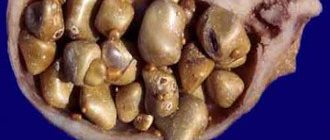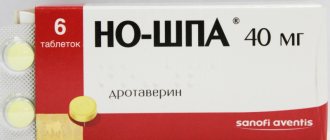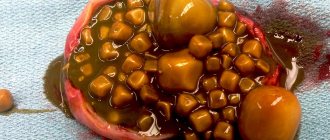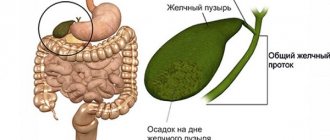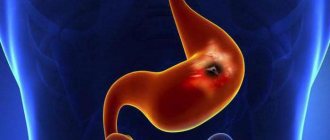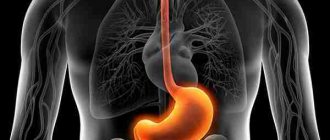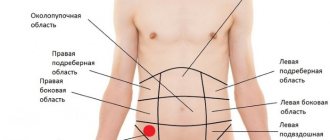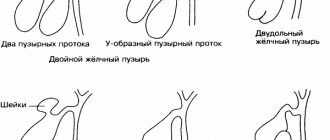Herbs and plants for treating the gallbladder
St. John's wort
When treating gallbladder pathologies, St. John's wort can be used in several ways:
- Pour 3 tablespoons of herbs with a glass of boiling water. Wait 4 hours and consume 3 times.
- Place 1.5 tablespoons of St. John's wort in an enamel container, pour a glass of boiling water and simmer over low heat for half an hour. Take 30 ml 3 times a day.
- Combine fresh herbs and alcohol in a ratio of 1:10. Infuse the resulting composition for 3 days. Before taking the medicine, it must be diluted with water: 10 ml of tincture and 50 ml of water.
Field dandelion
Pour 1 heaped teaspoon of dandelion roots and add 200 ml of cold water. Leave overnight, and the next morning bring to a boil and filter the resulting tea, drink 30 minutes before meals in an amount of 50 ml.
Dill seeds
Pour 2 tablespoons of seeds into 400 ml of boiling water. Wait 30 minutes and filter. The resulting infusion should be taken warm, so it is better to pour it into a thermos. Take ¼ cup 3-4 times a day.
Attention! The infusion must always be fresh, so you need to prepare it every day.
Milk thistle
Pre-chopped milk thistle fruits should be taken before meals, 1 tablespoon. You can drink it with yogurt or kefir.
Peppermint
Peppermint tea quickly relieves pain from inflammation of the gallbladder, and also calms the nervous system, eliminates dizziness, chills and insomnia. You need to pour a glass of boiling water into 1 tablespoon of mint, wait 20 minutes and drink tea instead 3 times a day.
Causes of the disease
The main factor on which the condition of the body as a whole depends is nutrition. Undereating and overeating are very harmful to the body and in some cases can cause irreparable harm to health. In case of overeating, the production of bile will be too strong, since a lot of high-calorie, fatty and spicy foods enter the body.
Inflammation of the gallbladder is also affected by endocrine changes, such as pregnancy, cycle disorders, and taking oral contraceptives. Due to a disruption in the blood supply to the bladder itself, its functionality may also change. This happens in people with diabetes and hypertension. Inflammation is also affected by the presence of allergic reactions in the body.
Primary sources may be:
- viral liver damage;
- inflammatory diseases of the urinary tract;
- inflammation of the respiratory tract, oral cavity;
- inflammatory bowel diseases;
- invasion of the biliary tract.
The infection enters the gallbladder through lymph, blood or from the intestines. Due to a sedentary lifestyle, irregular diet and stress, the body will malfunction and provoke the development of such a disease.
Berries and fruits for treatment
Common lingonberry
Pour boiling water over 200 g of berries and then drain the water. Add 400 ml of boiled cold water again and leave for 6 hours. Take the medicine for cholecystitis 100 ml 4 times a day.
Strawberries
Pour 3 chopped strawberry branches with root system and foliage with 2 cups of boiling water. Leave for 20 minutes, filter and take 80-100 ml 3 times a day after meals.
Attention! Tea made from strawberries has choleretic and diuretic properties.
Rosehip berries
Rose hips are known for their choleretic effect, and they also contain a lot of vitamin C.
You need to pour 20 g of fruit with 2.5 cups of boiling water. Leave for 10 minutes, and then take 100 ml 3-4 times a day.
Attention! The resulting decoction acts gently and delicately, promoting the outflow of bile. Organic acids contained in berries improve the functioning of the digestive system.
Red rowan
It is recommended to consume 2 cups of red rowan berries every day for bile stagnation. The course of therapy is 2 months. You need to use not garden fruits, but wild ones - forest ones.
Lemon water
Squeeze the juice of one citrus into 200 ml of warm water, add 1 tablespoon of honey. Take a gallstone drink instead of tea throughout the day.
Attention! Lemon has a tonic and choleretic effect, helps improve immunity and performance.
How to treat bile stagnation?
The presence of an inflammatory process, of course, has an extremely negative effect on the biliary organs, and in order to stop it, antibacterial drugs are prescribed. Also, in many cases, it is necessary to take Chokinetics or Choleretics: the action of the former is aimed at contracting the gallbladder, and the drugs of the second group act to increase the production of bile fluid.
Nutrition plays a particularly important role in the treatment of illness. After all, nutrition is the basis of the course of treatment, and without following the norms of a special diet, any treatment will be ineffective. And an incorrect diet and unhealthy diet are one of the main reasons for the formation of bile stagnation in the gallbladder and ducts. Therefore, you need to completely avoid fatty and fried foods, baked goods, and dishes with hot and salty spices. You should also forget about canned food and pickles, and eat only fresh fruits and vegetables. In addition, fruits and various berries should not be sour, and vegetables should not be bitter (radish, cabbage, etc.). In addition, it is important to maintain the recommended water balance and drink at least 1.5 liters of water per day. On an empty stomach, it is recommended to take mineral water without gas, for which “Borjomi” and “Essentuki” are excellent, but when choosing the desired concentration of alkali, and, accordingly, the numbering of the water, you should definitely consult a doctor so that there is a healing effect from such water.
Advantages and disadvantages of herbal treatment
Medicines used in the treatment of gallbladder diseases can have a harmful effect on other organs and systems.
Table - Pros and cons of herbal medicine
| Advantages | Flaws |
| Increases the body's ability to resist various external stimuli and pathologies, and serves as a natural immunomodulator. | Cannot be used for acute forms of liver and gallbladder pathologies. |
| Low cost compared to pharmaceutical drugs. | An incorrectly selected composition and dosage can worsen the patient’s condition and lead to the development of complications. |
| Herbs can be used by children, pregnant women and those patients for whom medications are contraindicated. | Possible development of allergies to herbal components. |
Drugs for traditional treatment
To determine the disease, it is necessary to make a high-quality diagnosis.
- First, a clinical blood test is done. Inflammation of the gallbladder can be determined by the state of leukocytes: their shift to the right or leukocytosis.
- A biochemical blood test will show the level of bilirubin, an increase in which causes an inflammatory process.
- A very important point will be to determine the state of bile using duodenal intubation. If there is sand in it or it is cloudy with flakes, this indicates the presence of a disease.
- The next step will require an ultrasound. It is necessary to make sure whether there is thickening, deformation or enlargement of the gallbladder.
- X-ray.
- Radioisotope research.
Antibiotics are prescribed to stop the infection. The course of treatment should last at least a week. In addition to antibiotics, antispasmodics such as No-spa and Atropine are used.
It is very important to take natural medications that will thin the bile. Gepabene, created specifically for the treatment of the gallbladder, will effectively remove inflammation. In addition, vitamins, especially vitamin B, are taken for general well-being.
We recommend reading: Causes, diagnosis and methods of treatment of Gilbert's syndrome
It is very important to begin detoxifying the body, boosting the immune system and improving motor-evacuation function. In addition to medications, a strict diet with a minimum set of products is prescribed, which will last for two to three weeks.
If bile is not excreted or treatment remains ineffective, then surgery is urgently prescribed.
When should you see a doctor?
It is necessary to contact a specialist immediately after the first symptoms appear, so as not to start the pathological process and prevent the development of complications. A gastroenterologist treats cholecystitis. If the form is chronic, it is useful to consult a nutritionist.
Gallbladder diseases can be recognized by aching pain that causes severe discomfort. In the treatment of pathology, proven folk remedies are often used. They will not be able to completely cure the disease, but as part of complex therapy they will allow you to get a quick effect without surgery.
Acalculous form of chronic cholecystitis - treatment with folk remedies
In case of stoneless inflammatory process, as a rule, folk recipes are used based on medicinal plants and their preparations, which have choleretic, antispasmodic and anti-inflammatory effects. Traditional medicine knows a lot of such remedies.
Read also: What symptoms are observed after gallbladder removal?
The most common medicinal plants with a good choleretic effect are:
- milk thistle;
- rosehip (roots);
- calendula (flowers);
- sand immortelle;
- dandelion (roots);
- barberry.
Calendula
They can be taken individually or as part of herbal teas.
Here are some of the most popular recipes for choleretic action:
| № | Helpful information |
| 1 | Pre-crushed milk thistle fruits are taken before eating, one tablespoon approximately 10 minutes before eating. Allows you to mix these fruits with low-fat yogurt or kefir to make consumption more comfortable |
| 2 | take 50 grams of crushed sandy immortelle and the same amount of corn silk. Stir, measure out a tablespoon and pour a glass of boiling water. We wait until the product cools to room temperature. Dosage regimen: three times a day, one third of the resulting glass |
| 3 | A plant such as calendula has both a choleretic and anti-inflammatory effect on the gallbladder. To prepare the infusion, pour boiling water (one glass) over one spoon of crushed plant flowers and wait until the infusion cools. The dosage regimen is the same as in the previous recipe. |
With acalculous cholecystitis, various juices help well, namely:
- lemon juice. To prepare it for use, mix the juice of half a lemon with one teaspoon of salt and dilute it all with half a liter of boiling water. The resulting remedy must be taken on an empty stomach, once a day, in the morning, immediately after sleep;
- a mixture of beet, cucumber and carrot juices with lemon juice. Mix 150 milliliters of each juice in equal proportions. You should drink the resulting amount in small sips, distributing it evenly throughout the day.
Treatment with antibiotics
Chronic inflammation requires treatment lasting 1.5 - 2 months.
It is imperative to restore the intestinal microflora with the help of probiotics and immunomodulation.
Anti-inflammatory non-steroidal drugs can provide significant assistance: analgin, ibuprofen, paracetamol.
Acute cholecystitis is primarily treated with antibiotics: erythromycin, ampiox, chloramphenicol. Next, you need to take choleretic drugs: holagol, allohol, oxafenamide.
To improve the condition, antispasmodics are also prescribed: drotaverine, no-spa, platifilin. Antibiotics are prescribed to fight the bacteria that cause the infection.
